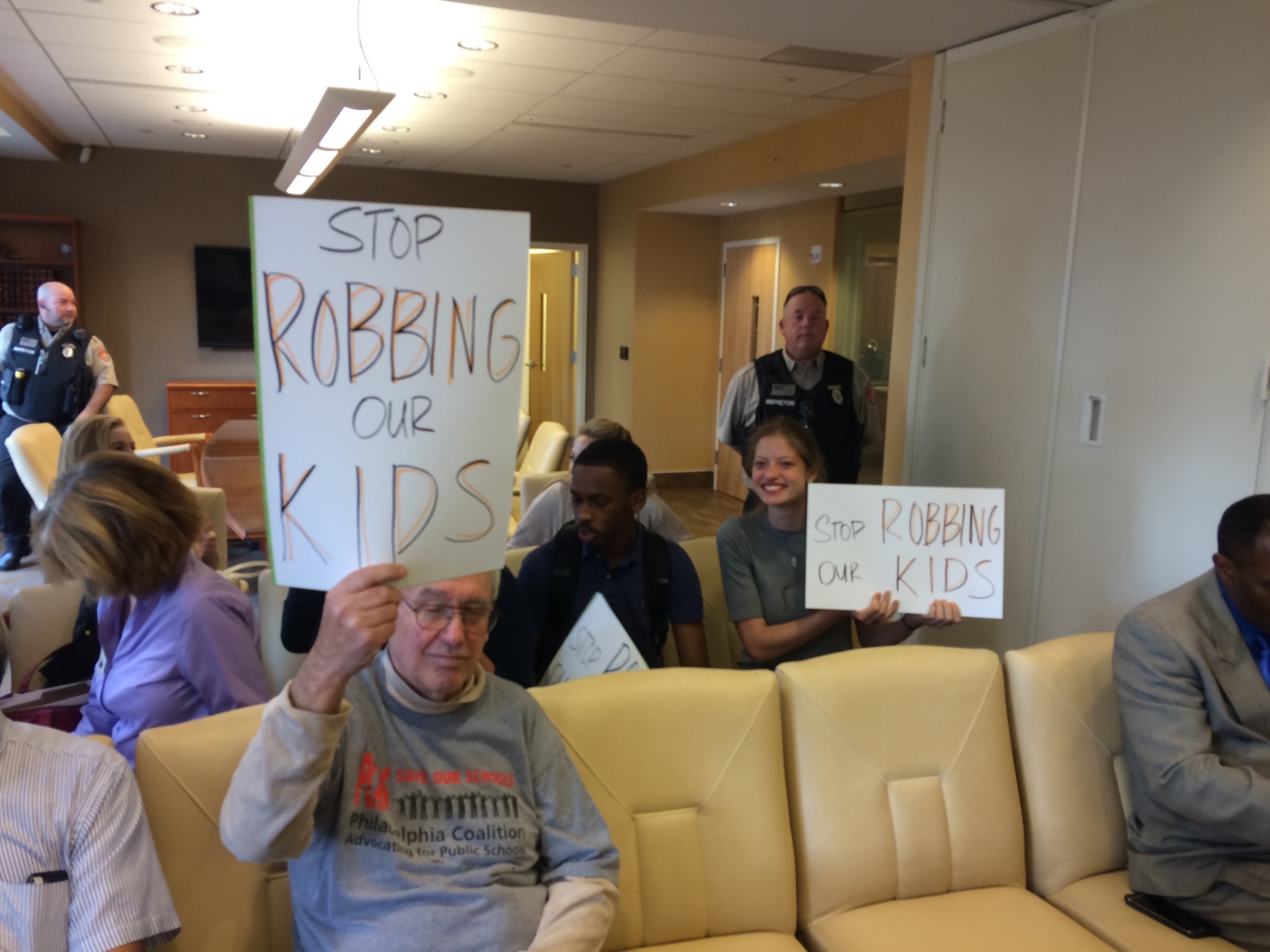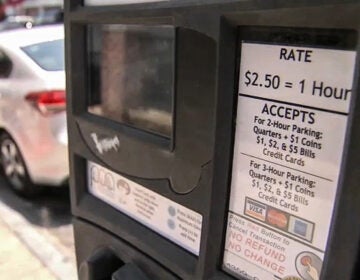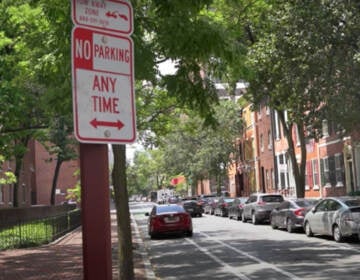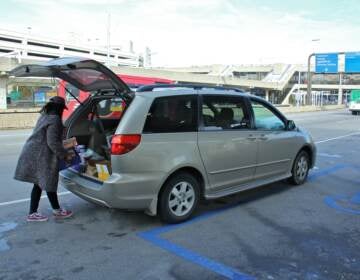PPA lambasted by education advocates over recent amendments to UberX, Lyft legalization bill

If you go to Fairmount Park or Rittenhouse Square on one of these sunny afternoons, you’ll see some little children, running around, playing with nature’s toys—sticks and stones—and generally having a ball.
And if you give those scamps an actual ball, they’ll be delighted! Thrilled!
But if you suddenly take that ball away? You can imagine the tantrum.
That’s what the Pennsylvania House recently did to education when it amended a bill legalizing Transportation Network Companies (TNC) like UberX and Lyft, effectively take money away from the School District of Philadelphia and give it to the Philadelphia Parking Authority (PPA) instead.
The PPA sends its profits, after retained earnings, on to the City of Philadelphia and the School District. For the fiscal year that ended March 31st, the PPA is remitting $10.3 million, less than the project $11 million it budgeted to send. It sent $11.1 million in fiscal year 2015.
“There is no place in this world where $4 million of revenue—new revenue—should go to the parking authority ahead of our school children,” said Councilwoman Helen Gym, who was elected last year largely on a platform of fighting for public schools.
Under the original bill, TNCs would pay a one percent tax on revenues earned in Philadelphia, with the PPA keeping one-third and the School District getting two-thirds. That was amended to levy a 1.7 percent tax on TNC revenues, and to impose a minimum annual assessment fee ranging from $100,000 for the smallest TNCs, and $2,000,000 for larger ones, like Uber. That minimum annual assessment fee goes straight to the PPA, with the PPA and the schools splitting anything over that 50-50. The PPA says regulating the TNCs will cost $3.8 million—hence the $4 million figure cited by Gym—largely because legalized TNCs will continue to hurt the existing taxi and limousine industry, reducing the number of fees and assessments it pays to the PPA.
But for the 1.7 percent tax to exceed the $2 million guaranteed fee that a large TNC like UberX would pay directly to the PPA first, ridership would have to increase exponentially, and as an analysis by the Inquirer notes, it’s very unlikely to rise by enough.
School children and school advocates are like all of us: We suffer from negativity bias, a universal psychological trait that makes losing something we had—or merely thought we had—hurt more than never getting, or being promised, it to begin with.
Dealing with negativity bias should be something the PPA’s used to by now. After all, the agency is best known for slapping our windshields with parking tickets, an act that inspires such rage and vitriol from average Philadelphians that it made for entertaining reality TV.
Yet, the PPA seemed nonplussed to hear from the outraged public today. The PPA Board has heard from dozens of angry taxi drivers before without feeling the need for extra protection, but not today. Three security officers in bulletproof vests watched on as Gym was joined in public comments by the NAACP Philadelphia Chapter President Rodney Muhammad, POWER Executive Director Bishop Dwayne Royster, Taxi Workers Alliance President Ron Blount, Liberty Resources Executive Director Thomas Earle, Media Mobilizing Project’s Hannah Jane Sassaman, Public Citizens for Children and Youth’s Donna Cooper, a handful of retired and active teachers, and a few high school seniors.
One of those students was Siduri Beckman, a Masterman senior.
“My school does not have toilet paper every day,” said Beckman with an embarrassed laugh. “I know my school gets a lot of support from its parents… there are many other schools in this city that don’t have that kind of support.”
Royster, the executive Director of POWER, urged the PPA board to look beyond the legislation’s basic numbers. “The decision about how you’ll spend this tax revenue from Uber and Lyft is not just a business decision, it’s a moral decision,” said Royster.
Following the comments and the PPA’s regular board meeting, the PPA board met in executive session, the second of the day following the usual executive session held just prior to the public meeting. After a 30-minute wait, during which the crowd dissipated, PPA Executive Director Vince Fenerty addressed the press.
“As the Executive Director of the Parking Authority—and our board—the fiducial[sic] responsibility is to make a business decision, not a moral decision,” said Fenerty in response to Royster.
“It’s a better deal, a far better business deal,” said Fenerty about the amended legislation.
The PPA argued that the original deal, which would have provided just $330,000 if the TNCs made $100 million in gross revenues, would have put the PPA’s Taxi and Limousine Division in the red. (The amended legislation directs it to become the Taxi, Limousine and Transportation Network Company Division.) Assuming the $3.8 million loss calculated by the PPA—based on assumed 25 percent decrease in taxi and limo fees and the hiring of five new inspectors at $80,000 a year including benefits—that would leave the Division in a huge financial hole.
Fenerty said that the PPA is prevented by existing statutes and ordinances from making up losses in one division with profits from another. “We can’t use the money from garages, or red light camera, or from on street – they’re each set up [as] different business entities by statute, ordinance or agreement,” said Fenerty.
Currently, UberX and Lyft are the only TNCs operating in Philadelphia—illegally for the moment—and under the proposed legislation, only UberX, which says it has over 10,000 drivers, would qualify as a Tier 1 TNC and pay the $2 million fee; Lyft would be classified as Tier 3 and pay $500,000. The two would pay $2.5 million, not enough to cover the PPA’s estimated $3.8 million shortfall.
In Fiscal Year 2015, the Taxi and Limousine division lost $647,000; in the Fiscal Year 2016 that just ended on March 31st, the division made $2.381 million.
Setting aside that the section of the statute establishing the Philadelphia Taxicab and Limousine Regulatory fund, 53 P.A.C.S. §5708, only says that the fund will be the “primary” operating fund for the administration and enforcement of the chapter, and not the exclusive fund, it’s unclear why the TNC legalization bill could not also provide for some flexibility to the PPA to shift funds from more profitable operations to less profitable taxi, limo and TNC regulations. That move would obviate the PPA’s need for up-front fees to cover regulatory expenses before the School District received funds.
If the PPA’s regulatory estimate of $3.8 million is accurate, then that move would be a wash in terms of school funding. Already, the PPA sends on its profits to the City of Philadelphia and the School District. The City’s cut is based on a somewhat complex formula derived from on-street parking revenues; the School District gets the remainder.
WHYY is your source for fact-based, in-depth journalism and information. As a nonprofit organization, we rely on financial support from readers like you. Please give today.






